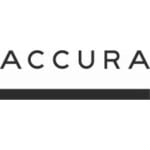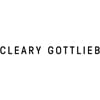-
What is the relevant legislative framework?
In the UK, cartel activity is considered both a civil and criminal offence. The civil offence is set out in Chapter I of the Competition Act 1998 (CA98), and the criminal cartel offence, which applies to individuals, is set out in section 188 of the Enterprise Act 2002 (EA02).
Chapter I of the CA98, also known as the Chapter I prohibition, closely mirrors its EU law equivalent, Article 101 of the Treaty on the Functioning of the European Union. It prohibits agreements, decisions and concerted practices between or among ‘undertakings’ (broadly, businesses and other economic operators) or ‘associations of undertakings’ which have as their object or effect the restriction, distortion or prevention of competition within the UK, and which affect trade within the UK. Although section 9 of the CA98 provides an exemption in cases where the efficiencies of an agreement outweigh the anticompetitive effects, it is highly unlikely that cartel behaviour, such as price fixing, would ever qualify for such an exemption.
CA98 does include some exemptions for certain industries, such as in relation to agricultural products: see CA98, schedule 3, paragraph 9. However, these exemptions are narrowly applied.
For further information, see the guidance of the UK Competition and Markets Authority (CMA) on how it applies Chapter I to agreements between competitors (CMA184).
In addition, any director of a company that has infringed the Chapter I prohibition may become the subject of an application by the CMA or sector regulator to the court for an order under Company Directors Disqualification Act 1986, section 1, to have them disqualified as a director for up to 15 years. For further information, see the CMA’s Guidance on competition disqualification orders (CMA102).
For the criminal offence, the EA02 sets out the criminal enforcement regime for individuals, which operates alongside the civil regime. Under section 188(1) EA02, any individual that agrees with others that their undertakings will engage in price-fixing, market-sharing, bid rigging or limiting supply or production may face a maximum five-year custodial sentence and/or a fine.
The offence applies in respect of arrangements to make or implement such agreements or to cause such arrangements to be made or implemented.
In practice, when dealing with suspected cartel conduct, the CMA will decide early on whether to investigate the conduct using its civil or criminal powers, given the different procedures and investigative powers involved under each offence.
-
To establish an infringement, does there need to have been an effect on the market?
Cartel conduct may infringe Chapter I of the Competition Act irrespective of whether it was actually implemented or had any effect on the market. To establish an infringement, it is sufficient to show that the conduct had the object of restricting competition, and either may affect trade or is likely to have an immediate, substantial and foreseeable effect on trade.
Similarly, under the EA02, individuals who agree to engage in cartel activities can face criminal prosecution, even if the activities were never implemented.
-
Does the law apply to conduct that occurs outside the jurisdiction?
As a result of the recently enacted Digital Markets, Competition and Consumer Act 2024 (DMCCA24), the civil offence under Chapter I of the Competition Act may apply to conduct outside the UK in the following cases:
- where the agreement is implemented, or intended to be implemented in the UK, and may affect trade in the UK, or
- in any other case, where the agreement is likely to have an immediate, substantial and foreseeable effect within the UK.
This marks a significant expansion of the Chapter I prohibition’s extraterritorial application. The result is that the Chapter I prohibition does not require the agreement to have been implemented or intended to be implemented in the UK.
Under the EA02, criminal proceedings may only be brought where the agreement has been implemented in whole or in part in the UK.
-
Which authorities can investigate cartels?
The civil offence under the CA98 is enforced by the CMA and by the regulators who have concurrent powers in their respective sectors, ie, the Civil Aviation Authority (CAA), the Financial Conduct Authority (FCA), the Office of Communications (Ofcom), the Gas and Electricity Markets Authority (Ofgem), the Water Services Regulation Authority (Ofwat), the Office of Rail and Road (ORR), the Northern Ireland Authority for Utility Regulation (NIAUR), and the Payment Systems Regulator (PSR).
The CMA now has sole civil enforcement powers in the healthcare services sector in England. Until 2022, Monitor (formerly part of NHS Improvement) had concurrent powers in that sector.
Although sectoral regulators do use their powers under CA98, the CMA remains the most active authority. Therefore, much of what follows addresses the CMA’s practice and procedure.
The CMA’s Guidance on concurrent application of competition law to regulated sectors (CMA10) explains how the concurrency regime operates in relation to CA98 investigations.
The criminal offence under the CA98 is enforced by the CMA along with the Serious Fraud Office (SFO) in England, Wales and Northern Ireland and with the Crown Office and Procurator Fiscal Service in Scotland.
-
How do authorities typically learn of the existence of a potential cartel and to what extent do they have discretion over the cases that they open?
The CMA will start its cartel investigations through evidence gathering. The primary avenues through which the CMA is made aware of evidence include:
- an application for leniency by a business participating in the conduct;
- a tip-off from a whistle-blower (such as a former or current employee);
- a complaint from a third party, such as an affected customer;
- information received from other competition authorities or governmental bodies; or
- the CMA’s own intelligence gathering activities.
For cartels specifically, the CMA has a ‘Cartels Hotline’ and a dedicated email address through which complainants can report suspected cartel conduct. The CMA also has a dedicated employee whistleblowing reporting tool, through which employees and ex-employees can report suspected competition law breaches by their current or former employers. For more information, see the Guidance on the CMA’s investigation procedures in CA1998 cases (CMA8), chapter 3.
The CMA also encourages cooperation of businesses, directors and current or former employees through offering various forms of immunity and leniency, as is explained more fully later in this chapter. The CMA’s immunity/leniency programme is a particularly important source of evidence. Most of the CMA’s recent cartel investigations resulting in infringement decisions began with leniency/immunity applications by businesses participating in the cartel conduct.
Following receipt of evidence of cartel conduct, the CMA has discretion over which cases it opens. The CMA has said it will decide which cases to investigate based on its Prioritisation Principles (CMA188). These take into account: the likely impact of the investigation in the form of direct or indirect benefits to consumers, the strategic significance of the case, the risks involved in taking on the case, and the resources required to carry out the investigation. In addition, the CMA will consider whether the evidence it has gathered meets the legal threshold for opening an investigation.
-
What are the key steps in a cartel investigation?
The CMA will consider at an early stage whether to address the infringement through the civil procedure (ie, under the CA98) or the criminal procedure (ie, through the EA02) or both. The procedural rules and powers of investigation available to the CMA vary depending on whether a civil or criminal investigation is being conducted.
In civil cases, section 25 of the CA98 sets out the legal basis for the CMA opening a formal investigation. It provides that the CMA can only exercise its formal investigative powers if there are reasonable grounds to suspect an infringement.
Once it has opened its investigation formally, the CMA has a range of powers to investigate suspected cartel conduct, including requiring the production of documents or information from those under investigation or third parties, conduct investigations on business premises which may be unannounced (dawn raids), and to interview relevant people, as is explained more fully later in this chapter.
Early in its investigation, the CMA will also send a case initiation letter to the businesses involved. This document outlines the conduct it is investigating, the legal basis for the investigation, the investigation timetable and key contacts. Sending a case initiation letter will usually coincide with the CMA’s use of its formal investigation powers, for example, sending the relevant business formal information requests. In cartel cases, however, the CMA may consider sending a case initiation letter first is not appropriate, because to do so prior to unannounced inspections (dawn raids) or witness interviews may prejudice its investigation.
Following an assessment of the evidence available, the CMA may: (i) decide to close the investigation due to administrative priorities; (ii) decide that there are no grounds for action; (iii) accept commitments with regard to future conduct; or (iv) issue a statement of objections (or SO) to the party under investigation, indicating its provisional view that the parties’ conduct infringes competition law.
A statement of objections sets out the CMA’s provisional findings, supporting evidence, and proposed action, and will normally be accompanied with a draft penalty statement setting out the proposed financial penalty. Where the CMA does issue a statement of objections, the parties then have an opportunity to inspect the CMA’s case file and respond. The CMA will provide a time limit by which parties may respond in writing, which will be no more than 12 weeks.
The CMA will meet the businesses under investigation at certain key points. The CMA will usually hold a ‘state of play’ meeting with the businesses once it has undertaken some investigatory steps. It will also invite the businesses to a further state of play meeting before it decides whether to issue a statement of objections. At this further meeting the CMA update the businesses on its provisional thinking on the case, including the competition concerns identified.
If the CMA considers there is sufficient evidence of an infringement, it may then issue to a final infringement decision imposing fines and issuing directions to bring the anticompetitive conduct to an end.
Following an infringement finding, the CMA will publish a non-confidential version of its infringement decision.
There is no limitation period on the CMA for imposing penalties for infringements (GF Tomlinson v OFT [2011] CAT 7), and the CMA has often issued infringement decisions many years after the relevant conduct concluded. For example, the CMA issued infringement decisions in 2025 in respect of the unlawful sharing of competitively sensitive information on UK government bonds, which took place between 2009 and 2013. However, once an investigation has started, the CMA must have regard to the need for making a decision, or taking action, as soon as is reasonably practicable (known as the duty of expedition).
See also the CMA’s Guidance on the investigation procedures in CA98 cases (CMA8), chapter 5.
Further guidance on the enforcement of competition law by the sectoral regulators is available from the relevant regulator’s website. For further guidance on how those regulators work with each other and the CMA, see the CMA’s Guidance on concurrent application of competition law to regulated industries (CMA10).
The CMA and the SFO may also bring criminal proceedings against a person if they have reasonable grounds for suspecting that a cartel offence has been committed. The CMA and the SFO share responsibility for conducting criminal cartel investigations, and in practice, the CMA often operates under the SFO’s direction. If prosecuted, individuals are given an opportunity to respond to the allegations, and the case is ultimately heard in a criminal trial at the Crown Court.
The CMA will inform any person that is the subject of a criminal investigation of that fact, as soon as is practicable and according to the specific needs of the investigation, which could be if the CMA seeks to interview them or if decides to bring proceedings against them.
Interviews of the suspect are conducted under the Police and Criminal Evidence Act 1984, under which the suspect will be provided with the legal basis for the investigation and the details of the conduct under investigation. At the interview the suspect has the right to remain silent, but they will also have an opportunity to raise any defence to the allegations made.
The CMA’s decision to prosecute the offence is made by application of the Full Code Test as set out in the Code for Crown Prosecutors. The Full Code Test has two stages: (i) the evidential stage; and (ii) the public interest stage. Where there is sufficient evidence to proceed, consideration must also be given to whether a prosecution is in the public interest.
For further information, see the CMA’s Cartel Offence Prosecution Guidance (CMA9) which sets out guidance on the principles it will apply in determining whether to start proceedings for a cartel offence.
-
What are the key investigative powers that are available to the relevant authorities?
In civil cases, the CMA may acquire evidence through the following means:
Requests for documents/information:
- Where the CMA has reasonable grounds to suspect anticompetitive conduct, it has authority to issue a written notice requiring any person (including third parties) to provide specified documents or information that relate to any matter relevant to its investigation. Failure to comply with a formal information request without reasonable excuse can result in a fine. It is also a criminal offence to provide false or misleading information or to destroy, conceal or falsify documents. Until recently, there was some uncertainty about whether the CMA had the power to require foreign companies to produce documents and information in response to an information request. However, the position is now made clearer by DMCCA24, which now provides that the CMA can issue a written notice to a person outside the UK if the person’s activities are being investigated under section 25 of the CA98 or the person has a UK connection.
Inspections on business or domestic premises:
- The CMA may access data held electronically (eg, on hard drives, laptops and mobile phones); take copies of relevant documents; require on-the-spot explanations of any such document; and interview individuals. The result is that the CMA’s powers (which were extended under the DMCCA24) include searching all documents accessible from the relevant premises. This includes documents stored offsite and outside the UK, including in the cloud.
- If the inspection is carried out under a court warrant, the CMA can also use reasonable force to obtain entry and take away originals of soft-copy and hard-copy documents. The CMA can also apply for a court warrant to enter and search domestic premises where information relevant to the investigation may be destroyed if the CMA requests the material in a written format. The evidential standard that the CMA must meet is higher when applying for a warrant to search domestic premises, compared to business premises (CMA v Another [2023] CAT 62).
Interviews:
- The CMA may also interview individuals as part of its investigations. Any information obtained during these interviews cannot be used against that person in a criminal prosecution, except in certain limited circumstances. The CMA may interview individuals in-person or remotely, eg via videolink.
The CMA may fine companies and individuals for non-compliance with formal CMA requests. See also CMA’s guidance on the investigation procedures in Competition Act 1998 cases (CMA8), chapters 8 to 8.
The DMCCA24 introduces a duty on individuals to preserve relevant documents. The CMA therefore now recommends “as a matter of good practice” that, where a person knows or suspects that the CMA is, or is likely to be, carrying out an investigation, they should take a broad view of relevant documents for these purposes and ensure their preservation and integrity.
In criminal cases, once the CMA is conducting an investigation, it may:
- require the person under investigation or any other person who it has reason to believe has relevant information to answer questions on any matter relevant to the investigation (section 193(1) EA02);
- require the production of documents which appear to relate to the investigation (section 193(2) EA02);
- seek to enter premises under a warrant (section 194 EA02).
Criminal cartel investigations will be carried out based on rules surrounding the collection of criminal evidence in the Police and Criminal Evidence Act 1984. The CMA and the SFO may also use covert surveillance in respect of domestic premises and private vehicles to obtain evidence.
For further information, see the CMA’s Cartel Offence Prosecution Guidance (CMA9).
-
On what grounds can legal privilege be invoked to withhold the production of certain documents in the context of a request by the relevant authorities?
The investigating authorities are not allowed to use their powers to require anyone to produce or disclose privileged communications.
Under English law, there are two types of legal professional privilege: legal advice privilege and litigation privilege. Legal advice privilege safeguards communications between a lawyer and client that are intended to seek or provide legal advice or related legal assistance. Litigation privilege applies to communications made by or between either the client or their lawyer, and a third party, for the primary purpose of being used in connection with actual or pending litigation. Communications with both external and in-house lawyers, as well as foreign lawyers, may be protected by legal advice privilege in the UK.
In addition, those under investigation are protected by the privilege against self-incrimination, such that they cannot be forced to give answers that require an admission of guilt. Note, however, that this does not prohibit self-incrimination by means of producing pre-existing documents or providing factual answers from which guilt may be inferred.
-
What are the conditions for a granting of full immunity? What evidence does the applicant need to provide? Is a formal admission required?
A business which is or has been involved in a cartel can also report cartel conduct via the CMA’s immunity/leniency programme. By reporting that conduct to the CMA, the business can gain full immunity from, or a reduction in, fines that the CMA ultimately imposes. As is explained more fully below, cooperating current and former employers and directors of companies which gain immunity from fines will also normally receive immunity from criminal prosecution. An individual who comes forward with information about a cartel may also receive immunity from criminal prosecution. See CMA’s guidance on applications for leniency and no-action in cartel cases (OFT1495).
There are three types of immunity/leniency available depending on the stage at which the business makes the application and the amount of information provided:
Type A:
This type of immunity is available where an investigation has not started. It provides guaranteed full corporate immunity from financial penalties, guaranteed “blanket” immunity from criminal prosecution for all current and former employees and directors that cooperate with the CMA, and guaranteed director disqualification protection. To be eligible for Type A immunity, the undertaking must be the first to apply for leniency and disclose information that provides “a sufficient basis for taking forward a credible investigation.”
Type B:
Where an investigation into the cartel activity has already started, the first applicant may get corporate immunity from financial penalties (or reductions up to 100%) and criminal immunity from prosecutions for all or some of the employees and directors. Cooperating individuals may also avoid director disqualification. Unlike under Type A immunity, Type B immunity is not guaranteed, and the CMA has discretion as to the level of reduction on any financial penalties. To benefit from Type B immunity or leniency, the information provided must “add significant value” to the CMA’s investigation. It is, therefore, not available when the CMA has already gathered sufficient information to establish a civil infringement or to bring a successful criminal prosecution.
Type C:
The second applicant or later applicants, regardless of whether there is a pre-existing investigation, that provide information that “add significant value” to the investigation before a statement of objections is issued, may also receive a reduction that is typically between 25% and 50%. The CMA may also award immunity from criminal prosecution for specific individuals and cooperating individuals may be able to avoid disqualification as a director, where corporate leniency reduction is granted.
See CMA’s guidance on applications for leniency and no-action in cartel cases (OFT1495).
-
What level of leniency, if any, is available to subsequent applicants and what are the eligibility conditions?
As set out above, subsequent applicants that provide significant information before the statement of objections is issued may be granted Type C leniency.
-
Are markers available and, if so, in what circumstances?
Yes. Prior to submitting a leniency application, a representative from the business or its legal advisors may approach the CMA anonymously to determine whether guaranteed immunity (ie, Type A) is available and to secure its position in the queue for leniency. To do so, the business must confirm that it has a “concrete basis” for suspecting cartel activity and a “genuine intention to confess.” They must also provide sufficient information to the CMA to determine whether a related investigation already exists.
Where the applicant is already aware of a pre-existing investigation, it may contact the CMA to ascertain whether Type B immunity or leniency is in principle available. If it is, the applicant can seek to establish whether the information it can provide would be sufficient to warrant a marker for Type B immunity in its case. The undertaking would have to specify the form and substance of the information it expects to provide to the CMA.
-
What is required of immunity/leniency applicants in terms of ongoing cooperation with the relevant authorities?
Applicants are required to provide full cooperation on an ongoing basis both during the course of the CMA’s investigation and in any subsequent proceedings. A senior representative of the business will have to sign a letter indicating a commitment to continuous and complete cooperation throughout the investigation.
In order to avoid ‘tipping off’ other suspected cartelists of a CMA investigation, immunity/leniency applicants are required to keep the fact of the leniency application, or even that a leniency application is in contemplation, confidential. An immunity/leniency applicant should consult the CMA before disclosing its application to, for example, its bank or auditors. See CMA’s guidance on applications for leniency and no-action in cartel cases (OFT1495), paragraphs 3.24 to 3.28.
-
Does the grant of immunity/leniency extend to immunity from criminal prosecution (if any) for current/former employees and directors?
As is explained above, where Type A immunity is granted to an undertaking, its current and former employees and directors that cooperate with the CMA will receive immunity from criminal prosecution. Where the applicant is an individual, neither the undertaking that employs them nor other individual employees are protected by Type A immunity, but they may be able to obtain Type B immunity or leniency.
For applicants for Type B immunity, Type B leniency or Type C leniency, the CMA has discretion as to whether to grant criminal immunity from prosecutions for all or some of the employees and directors.
-
Is there an ‘amnesty plus’ programme available in respect of evidence provided to prove additional infringements?
Yes. The CMA has said that where an undertaking that is cooperating with a cartel investigation in one market (the first cartel) obtains total immunity or reduction in financial penalties in relation to its cartel activities in the second market (the second cartel), it will also receive a reduction in the financial penalties imposed in relation to the first cartel. This reduction in fine is in addition to any reduction granted as a result of its cooperation in the first cartel alone. See CMA’s guidance on applications for leniency and no-action in cartel cases (OFT1495), paragraph 9.1 to 9.2.
-
Does the investigating authority have the ability to enter into a settlement agreement or plea bargain and, if so, what is the process for doing so?
Yes, an undertaking involved in a cartel activity may approach the CMA to initiate settlement discussions either before or after the statement of objections has been issued. The CMA retains discretion as to whether to accept a settlement agreement and will consider it as long as it believes that the evidential standard for giving notice of its proposed infringement decision is met.
The undertaking seeking a settlement must:
- make a “clear and unequivocal” admission of liability in relation to the nature, scope and duration of the cartel activity;
- end its involvement in the cartel activity;
- confirm that it will pay a penalty set at a maximum amount, including a settlement discount (capped at 20% before the statement of objections and at 10% after); and
- agree to procedural cooperation with the CMA.
In addition, the undertaking must accept that there will be a final infringement decision against it, and it must agree not to appeal the decision to the Competition Appeal Tribunal (CAT). Therefore, even if another (non-settling) addressee of the infringement decision successfully appeals the decision, the final infringement decision remains binding against the settling undertaking.
The CMA does not enter into any other negotiations or plea-bargaining. The CMA does not need court or tribunal approval before entering into a settlement agreement.
The CMA has occasionally entered into “hybrid” settlements. In such cases (such as in the Nortriptyline Tablets investigation), some parties settle thereby admitting liability and accepting penalties, but others do not and proceed through the standard investigation procedure.
-
What are the key pros and cons for a party that is considering entering into settlement?
A key advantage of entering into settlement is the discounted level of the fine. The actual level of discount awarded will depend on the resource savings achieved as a result of the settlement. The maximum level of discount available for settlement reached before a statement of objections is issued is 20% and 10% after the statement of objections has been issued. The settlement discount is in addition to any leniency discount granted. The settling party may also value the streamlined procedure, which will save continued management time and legal fees, although the advantages of the streamlined procedure may be reduced for a ‘hybrid’ settlement. Cooperating with the CMA may help the party in its media communications when the decision is announced.
The CMA will usually require a settling party to make an unequivocal admission of liability in relation to the nature, scope and duration of the infringement, which can have a detrimental impact on the party’s position before other authorities and (potential) private claimants. On the other hand, the CMA’s settlement decisions are often less detailed than its fully contested decisions, so potential private claimants may be hindered by having access to less information on which to base any private damages claims.
Settlement also limits the possibility of appeal. Following a case where a settling party made an unsuccessful appeal to the CAT (Roland v CMA [2021] CAT 8), the CMA’s guidance now states that settling businesses must accept that the CMA’s decision will remain final (even if challenged by another addressee) and that they will not challenge or appeal the decision to the CAT. Therefore, a settling undertaking may risk receiving a less favourable outcome than non-settling parties.
Furthermore, the CMA has complete discretion in deciding whether to settle and may withdraw from the settlement procedure at any point, even after successful settlement discussions, should it consider that the undertaking is not complying with the settlement requirements.
-
What is the nature and extent of any cooperation with other investigating authorities, including from other jurisdictions?
The CMA and sectoral regulators with CA98 powers have information sharing arrangements to facilitate the exercise of their functions. Arrangements for the broad sharing of information are set out in individual Memoranda of Understanding between the CMA and each of the sectoral regulators. See for example the Memorandum of Understanding between the CMA and the FCA on concurrent competition powers in relation to the provision of financial services. See also the CMA’s Guidance on the concurrent application of competition law to regulated industries (CMA10).
They are also permitted to share information about a broader range of complaints than those where there are sufficient grounds for suspecting a CA98 infringement.
In the context of leniency in particular, the CMA has published an information note setting out the arrangements for the handling of leniency applications between the CMA and sector regulators. It provides that all businesses seeking leniency should first approach the CMA, rather than a sector regulator. See the Information note arrangements for the handling of leniency applications in the regulated sectors.
In international cases, the CMA also works closely with the European Commission, the US Department of Justice and authorities in other countries such as Australia, Canada, and New Zealand. The CMA may disclose certain information to overseas public authorities to facilitate the exercise by the CMA of its functions and by the overseas public authority of any function it has relating to investigating criminal proceedings or civil proceedings. Subject to certain conditions being satisfied, the CMA may also provide investigative assistance to overseas public authorities who have functions which correspond or are similar to the CMA’s own functions.
Providing investigative assistance is entirely at the CMA’s discretion, and the overseas public authority must not use the information for any other purpose unless the CMA consents. For further information, see the CMA’s guidance, Transparency and Disclosure: Statement of the CMA’s Policy and Approach (CMA6), chapter 7.
-
What are the potential civil and criminal sanctions if cartel activity is established? How often are civil sanctions and/ or criminal penalties imposed in practice following a finding of an infringement?
In civil cases, for an infringement of the Chapter I prohibition, the CMA may impose a fine of up to 10% of the undertaking’s worldwide turnover in the last business year. Directors may also be disqualified for up to 15 years under the Company Directors Disqualification Act 1986.
Where it finds cartel conduct, the CMA will impose fines on the businesses involved (subject to immunity, leniency and settlement reductions). The CMA has also used its director disqualification powers in a number of recent cases, eg its investigations into Supply of Construction Services, Nortriptyline Tablets, and Roofing Materials.
The CMA may also pursue separate but parallel criminal proceedings against the relevant individuals under the EA02, which can result in imprisonment for up to 5 years and fines. Criminal prosecutions are relatively rare: the CMA has only brought a handful of successful criminal prosecutions since its criminal powers were introduced.
-
What factors are taken into account when the fine is set? Does the existence of an effective corporate compliance strategy impact the determination of the fine? In practice, what is the maximum level of fines that has been imposed in the case of recent domestic and international cartels?
In determining the level of fine to be imposed, the CMA will identify a starting point of up to 30% of the undertaking’s turnover in the relevant market. The CMA’s guidance on penalties (CMA73) states that, for the most serious types of infringement such as cartel conduct, the starting point is likely to be between 21% and 30%.
The CMA will adjust this starting point according to the duration of the infringement, any aggravating or mitigating factors, the need for specific deterrence, and any settlement agreements and leniency applications. In any case, the final amount of penalty cannot exceed 10% of the undertaking’s worldwide turnover in the last financial year.
Aggravating factors, which may increase the level of fine, include, for example, unreasonably delaying the investigation, the role of the undertaking as an instigator, the involvement of directors or senior management in infringement, retaliation against other cartelists to ensure compliance with cartel activity, continuing the infringement after the investigation’s launch, and recidivism. Mitigating factors that may decrease the fine include acting under duress, termination of the infringement as soon as the CMA intervenes, and cooperation with the enforcement process.
The CMA no longer treats having compliance programmes as a mitigating factor, because it expects businesses should, as a matter of course, take steps to ensure they comply with competition law.
The CMA’s largest fines in a single case totalled £104 million. It related to the CMA’s infringement decisions made in 2025 on information sharing by five banks in relation to UK government bonds, with the highest individual fine being £34.2 million for Royal Bank of Canada.
-
Are parent companies presumed to be jointly and severally liable with an infringing subsidiary?
A parent company may be held jointly and severally liable with its infringing subsidiary where the parent company had the ability to and actually did exercise decisive influence over the subsidiary’s actions.
Where the parent company has a 100% shareholding in the infringing subsidiary, there is a rebuttable presumption that the parent company did indeed exercise such decisive influence (following the so-called ‘Akzo presumption’ under EU law).
-
Are private actions and/or class actions available for infringement of the cartel rules?
In the UK, claimants can bring private actions for damages resulting from a breach of competition law either in the High Court or in the CAT. The claimant may bring its claim as a ‘follow-on’ damages action based on an earlier infringement decision of the CMA, which the High Court and CAT must treat as binding evidence of liability. Where there is no previous infringement decision issued and thus the infringement is unproven, the claimants may bring a ‘standalone’ action. Recent examples of claimants successfully bringing private follow-on damages actions include BritNed v ABB (related to the power cables cartel), Royal Mail & BT v DAF Trucks (Trucks Cartel), and Granville v LG Display (LCD Cartel).
Where a number of people are similarly harmed by a cartel, a group action (known as collective proceedings) may be brought before the CAT. In order to start collective proceedings, the class representative will first have to make an application for a collective proceedings order (CPO) before the CAT, which will authorise the class representative for the claimants and stipulate whether the claim may be brought on an “opt-in” basis (ie, the claim is brought on behalf of all persons that actively decide to participate) or on an “opt-out” basis (ie, the claim is brought on behalf of all persons who fit the description of the class unless they expressly choose to not participate).
The use of collective proceedings has become more common in the UK following the landmark Supreme Court decision in Merricks v Mastercard, where the Supreme Court considered the collective proceedings regime for the first time following which the CAT then granted the CPO. In 2022, the CAT certified the first opt-in collective proceedings, which was a follow-on claim brought by the Road Haulage Association resulting from the European Commission’s 2016 Trucks cartel decision.
-
What type of damages can be recovered by claimants and how are they quantified?
Damages in private actions are calculated with the intention of restoring the claimant to the position they would have been in had the infringement not occurred.
Various comparator-based methods can be used to quantify the harm. Where a particular product has been cartelised, it may be possible to compare the price in the infringement scenario with a non-infringement scenario on the basis of price data observed either: (1) on the same market at a time before and/or after the infringement, (2) on a different but similar geographic market, or (3) on a different but similar product market. It may also be possible to combine these comparator-based methods.
Alongside these comparator methods, other methods exist to establish an estimate of the hypothetical non-infringement situation. These include the simulation of market outcomes on the basis of economic models and estimating a likely non-infringement scenario on the basis of costs of production and a reasonable profit margin.
Given the difficulties of proof inherent in the quantification of competition law damages, the courts will adopt the “broad axe” principle and will be wary of “spurious accuracy”. They will seek to make judgment calls to reach what they consider to be the true value of an overcharge based on the evidence provided (see Royal Mail & BT v DAF Trucks [2023] CAT 6, paragraph 479.)
-
On what grounds can a decision of the relevant authority be appealed?
Appeals against infringement decisions by the CMA or the concurrent sectoral regulators under the CA98 can be made to the CAT, which can conduct a full review (ie, on points of law, points of fact or as to the amount of the fine). The CAT may send the case back to the CMA or regulator for reconsideration or pass its own judgment, which will supersede the CMA or regulator decision. CAT judgments may be appealed to the Court of Appeal (on points of law or as to the amount of fine) and, subsequently, to the Supreme Court (on a point of law or public importance).
-
What is the process for filing an appeal?
The CMA or sectoral regulator decision must be appealed to the CAT within two months of the date on which the appellant was notified of the decision or the date that the decision was published, whichever is earlier, per the CAT Rules 2015. The application must specify the grounds of appeal and the relief sought.
-
What are some recent notable cartel cases (limited to one or two key examples, with a very short summary of the facts, decision and sanctions/level of fine)?
The CMA has recently concluded two particularly high-profile investigations into UK government bonds and ‘end-of-life’ vehicle recycling respectively.
In February 2025, the CMA issued infringement decisions against five banks for unlawfully sharing competitively sensitive information about UK government bonds. It imposed fines totalling over £130 million. Four banks (Citi, HSBC, Morgan Stanley, Royal Bank of Canada) settled and received fine reductions. Deutsche Bank received immunity for whistleblowing under the CMA’s leniency policy.
In April 2025, following a parallel EU investigation, the CMA fined 10 major car manufacturers and two trade associations for participating in a 15-year cartel regarding the recycling of end-of-life vehicles. The CMA found that certain manufacturers were involved in a cartel in relation to buying recycling services for ‘end-of-life’ vehicles. In addition, the manufacturers colluded by limiting the information they would provide to customers on the recyclability of their vehicles.
The CMA imposed fines totalling over £77 million, with the highest individual fine being for Ford of over £18 million. Various companies received leniency discounts, including Mercedes-Benz receiving full immunity for whistleblowing. All other companies admitted involvement and settled, receiving a 20% discount.
-
What are the key recent trends (e.g. in terms of fines, sectors under investigation, any novel areas of investigation, applications for leniency, approach to settlement, number of appeals, impact of hybrid working in enforcement practice – e.g. dawn raids of domestic premises, ‘hybrid’ in-person/virtual dawn raids, access to personal devices, etc.)??
For substantive infringements, the CMA pipeline of cases has been relatively limited compared to recent years. Although there has been a recent spate of decisions in early 2025 (eg UK government bonds, TV labour markets, end-of-life vehicle recycling), in 2024 the CMA concluded no Competition Act 1998 investigations. In addition, the CMA currently has few Chapter I investigations ongoing.
There have been a number of procedural changes, however, that may aid the CMA in its cases. The past year as seen the CMA’s investigative powers expand markedly. For instance:
- a person is now required to preserve documents where that person knows or suspects an investigation by the CMA is being or is likely to be carried out.
- the CMA now has expanded powers as to the territorial scope of the CMA’s investigative powers. The CMA can now require ‘any person’ including an undertaking (which need not have a territorial connection to the UK) to produce documents and information held outside the UK; and
- the DMCCA24 now provides for higher procedural penalties for non-compliance by businesses under investigation.
-
What are the key expected developments over the next 12 months (e.g. imminent statutory changes, procedural changes, upcoming decisions, etc.)?
The CMA in a recent speech highlighted three particular areas of priority: public procurement, labour markets, and pricing algorithms. Its draft plan for 2025-2026 also puts a “spotlight” on public procurement. This also follows the government’s legislative priorities: if the Procurement Act comes into force (expected later in 2025), those found to have infringed competition law will face the prospect of being added to the new central debarment register and excluded from all public procurement for up to five years. Consistent with these priorities, in December 2024, the CMA launched an investigation into suspected bid rigging in relation to a key government fund for improving the condition of school buildings. The school buildings cartel is likely to be a priority for the CMA.
In terms of the CMA’s procedural powers, as mentioned, the competition law reforms in the DMCCA24 include stronger CMA investigation powers. We might expect to see the CMA make full use of those investigative powers.
United Kingdom: Cartels
This country-specific Q&A provides an overview of Cartels laws and regulations applicable in United Kingdom.
-
What is the relevant legislative framework?
-
To establish an infringement, does there need to have been an effect on the market?
-
Does the law apply to conduct that occurs outside the jurisdiction?
-
Which authorities can investigate cartels?
-
How do authorities typically learn of the existence of a potential cartel and to what extent do they have discretion over the cases that they open?
-
What are the key steps in a cartel investigation?
-
What are the key investigative powers that are available to the relevant authorities?
-
On what grounds can legal privilege be invoked to withhold the production of certain documents in the context of a request by the relevant authorities?
-
What are the conditions for a granting of full immunity? What evidence does the applicant need to provide? Is a formal admission required?
-
What level of leniency, if any, is available to subsequent applicants and what are the eligibility conditions?
-
Are markers available and, if so, in what circumstances?
-
What is required of immunity/leniency applicants in terms of ongoing cooperation with the relevant authorities?
-
Does the grant of immunity/leniency extend to immunity from criminal prosecution (if any) for current/former employees and directors?
-
Is there an ‘amnesty plus’ programme available in respect of evidence provided to prove additional infringements?
-
Does the investigating authority have the ability to enter into a settlement agreement or plea bargain and, if so, what is the process for doing so?
-
What are the key pros and cons for a party that is considering entering into settlement?
-
What is the nature and extent of any cooperation with other investigating authorities, including from other jurisdictions?
-
What are the potential civil and criminal sanctions if cartel activity is established? How often are civil sanctions and/ or criminal penalties imposed in practice following a finding of an infringement?
-
What factors are taken into account when the fine is set? Does the existence of an effective corporate compliance strategy impact the determination of the fine? In practice, what is the maximum level of fines that has been imposed in the case of recent domestic and international cartels?
-
Are parent companies presumed to be jointly and severally liable with an infringing subsidiary?
-
Are private actions and/or class actions available for infringement of the cartel rules?
-
What type of damages can be recovered by claimants and how are they quantified?
-
On what grounds can a decision of the relevant authority be appealed?
-
What is the process for filing an appeal?
-
What are some recent notable cartel cases (limited to one or two key examples, with a very short summary of the facts, decision and sanctions/level of fine)?
-
What are the key recent trends (e.g. in terms of fines, sectors under investigation, any novel areas of investigation, applications for leniency, approach to settlement, number of appeals, impact of hybrid working in enforcement practice – e.g. dawn raids of domestic premises, ‘hybrid’ in-person/virtual dawn raids, access to personal devices, etc.)??
-
What are the key expected developments over the next 12 months (e.g. imminent statutory changes, procedural changes, upcoming decisions, etc.)?














